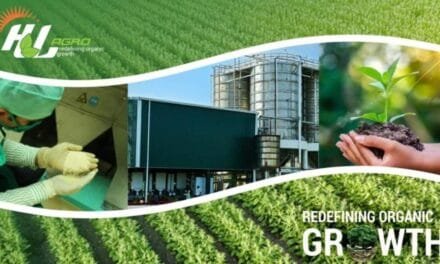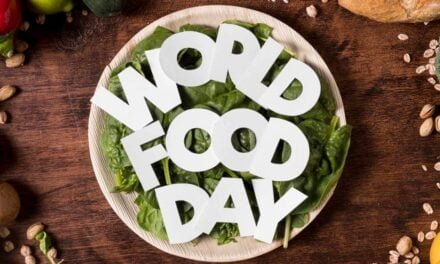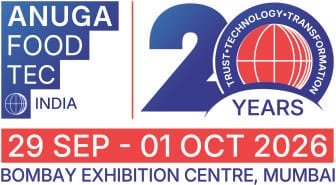Food regulators, including FSSAI, are increasingly crucial in addressing global challenges such as foodborne illnesses, nutraceutical safety, novel foods, and microplastics.
Union Minister of Health and Family Welfare, Jagat Prakash Nadda, inaugurated the second edition of the Global Food Regulators Summit 2024 in the presence of Pralhad Joshi, Union Minister of Consumer Affairs, Food and Public Distribution, at New Delhi.
The Summit is being organised by the Food Safety and Standards Authority of India (FSSAI) under the aegis of the Ministry of Health and Family Welfare, alongside the World Food India 2024. The event aims to establish a global platform for food regulators to exchange insights on strengthening food safety systems and regulatory frameworks throughout the food value chain.
Addressing the gathering, Nadda said, “we launched the inaugural Global Food Regulators Summit in 2023 as a co-branded event with the G20 Summit. This ground-breaking initiative brought together global food regulators to discuss the challenges and threats to our food safety systems.

As the globe strives for sustainability while dealing with issues like foodborne illnesses, innovative foods, microplastics, and the safety of nutraceuticals, the Union Health Minister emphasized the increasing significance of food regulators. According to him, there has never been a more important role for food regulators, and this job necessitates constant creativity, teamwork, and dedication to enhancing the food safety systems.
Nadda commended the efforts made by FSSAI and the Ministry of Health and Family Welfare in developing standards, keeping in mind international trade, evolving food production processes, and changing consumption patterns. “A notable achievement was the development of millet standards, launched by our Hon’ble Prime Minister at the Global Millets (Shree Anna) Conference on March 18, 2023”, he said.
The Union Health Minister also noted ongoing work to harmonise food safety standards with international benchmarks. “This includes developing the National Action Plan on AMR 2.0 and aligning Maximum Residue Limits (MRLs) for pesticides with Codex standards, enhancing our position in global trade”, he said. He further stated that GFRS 2024 presents an expanded platform to deepen our understanding of global regulatory frameworks and promote the exchange of information on food product safety requirements.
The Union Minister also informed that India is involved in strengthening regulatory capacity in countries like Bhutan, Nepal, and Sri Lanka. He highlighted India’s efforts in alternative measures to curb the increasing menace of plastic wastes, he said that India is taking steps to reduce plastic waste and adopting organic farming and pest control measures.

Pralhad Joshi lauded the efforts of FSSAI in organising the one-of-its-kind Global Summit for the second consecutive year. Joshi highlighted the importance of global dialogue on food safety: “Our collaborative efforts between food regulators, research organisations, and consumer affairs departments will drive innovation, ensuring that policies reflect the dual priorities of consumer protection and environmental sustainability.”
He also highlighted the importance of food quality and food safety for building a healthy and fit nation. “Setting the standards of the regulations is the primary duty and responsibility of the government. FSSAI and our department have a crucial role in ensuring that safe food reaches the people”, he stated.
Dr Tedros Adhanom Ghebreyesus, Director General of the World Health Organisation (WHO), who addressed the gathering virtually, said that our food system faces several challenges globally due to climate change and highlighted the critical role of national food regulators in harmonising regulatory policies for the world.
Highlighting that FSSAI is actively working to harmonise food standards, Apurva Chandra, Secretary, Ministry of Health and Family Welfare and Chairperson, FSSAI, said that “technology is essential for strengthening food safety standards. FSSAI has been at the forefront of utilising technology-based solutions for licensing, import clearances, audits, inspection and other critical aspects of the food ecosystem.”
The Union Health Secretary highlighted the significant strides made by the Government of India in fortifying rice and distributing it through the public distribution network to address micronutrient deficiency in the country. He said AI and machine learning are innovative solutions to strengthen the food regulatory system.
Punya Salila Srivastava, Officer on Special Duty, Ministry of Health and Family Welfare, noted that this Summit brings together the best minds of the world in food safety, which provides an opportunity to share knowledge. She said that food safety and nutrition are critical to human health, and the government of India has taken many initiatives to strengthen and enhance food safety governance.
Dr Samuel Godefroy, President, IUFoST stated that food science is vital for human survival and can only be sustained through innovative regulatory solutions. He applauded FSSAI for its contribution to strengthening the global food regulatory network.
Mr Steve Wearne, Chairperson, Codex, appreciated India’s significant investment in Codex and food safety regulation. He highlighted that India is one of the few countries to host subsidiary commissions of Codex.
Several innovative initiatives aimed at transforming food safety practices and enhancing information sharing were launched during the ceremony. Among these initiatives was the introduction of the Food Import Rejection Alerts (FIRA), an online portal designed to notify the public and relevant food safety authorities about food import rejections at Indian borders.
The Summit also unveiled a new website for the Food Import Clearance System 2.0 (FICS 2.0), an advanced version of the Food Import Clearance System for faster processing and transparency, addresses the limitations of the earlier system by offering a complete online solution with new features, automation, and integration with other relevant portals.

Have a news or topic to share with industry? Write to us editorial@pfionline.com
















